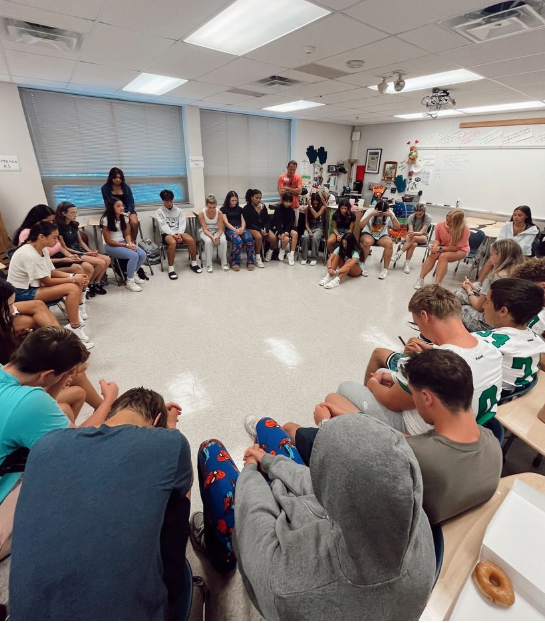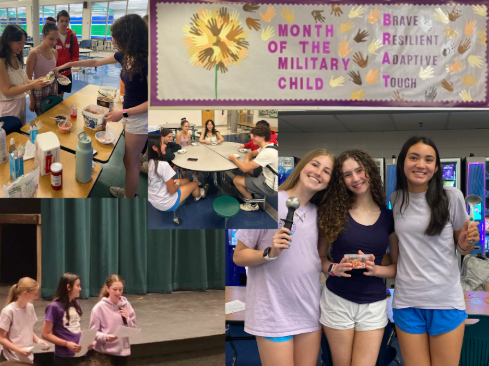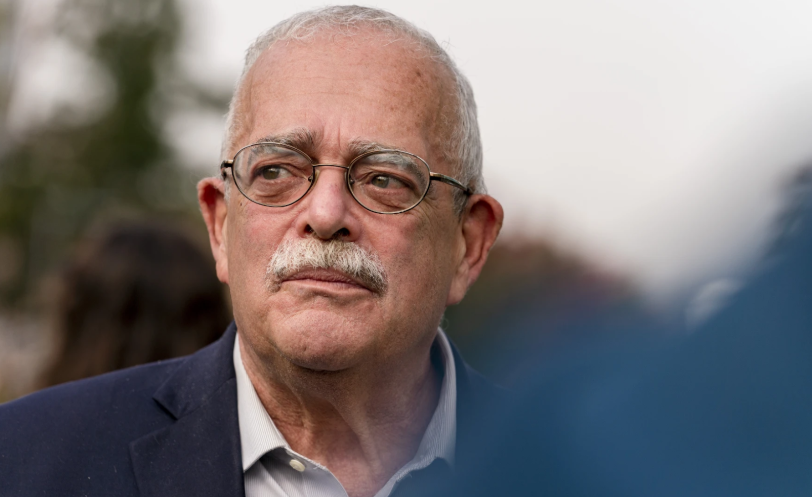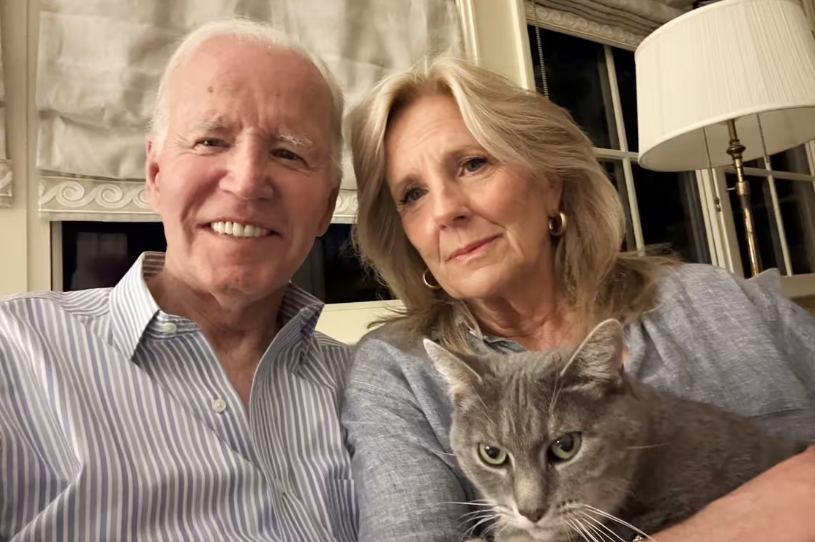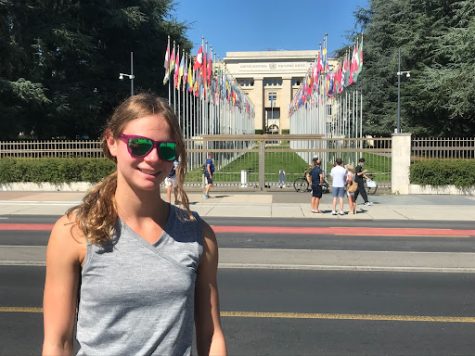
As the semester’s end approaches, IB Diploma Candidates say goodbye to their Theory of Knowledge classes. Whether taken during the school day or on Tuesday afternoons, TOK is a cornerstone component to the IB Full Diploma experience which may become available to non-diploma candidates for the first time next year. Seniors reflect on their experiences in the class, providing guidance for the next students taking the class either next semester or next year.
According to IB, TOK is a philosophy class designed to ask “how we know what we claim to know.” It challenges students to break down the fundamentals of any argument, belief, or claim and how to more intuitively utilize evidence.
Maeve Hartley described TOK as a class “in the way [one] would describe science fiction books.” She explained, “It takes real or plausible scenarios and puts them in a context where differing perspectives can be discussed without offending anyone. I think one of the best questions that is asked throughout the year is about the differences between belief and opinion, and fact and truth.”
Through exploring these questions, TOK reshapes the way students view the world around them. Sebastien Babilotte said, “Through TOK, I have considered concepts such as how power, perspectives, and culture influence our knowledge.”
TOK is designed to connect all the IB subjects and as a result, many of the IB requirements for the Full Diploma are facilitated through that class.
The 4,000 word Extended Essay is proctored through TOK classes. Hartley enjoyed writing her EE because “[she] had the opportunity to discuss things that [she] really enjoyed in an academic setting.” She also had the opportunity to speak with and derive research from scholars and experts. She added, “Something else I liked about it was that I was able to write it whenever I had a spark of inspiration, so although it took me a few weeks to write, I never wrote more than a couple paragraphs every few days which helped me stay internally motivated to finish it.”
However, TOK also involves many smaller projects for the purpose of facilitating critical thinking. Babilotte said his favorite assignment was watching “Interstellar” and creating a trailer which “incorporated TOK themes.” He said, “It was interesting to think deeper about a typical form of entertainment. It raised questions such as ‘How can perspectives and beliefs affect those around us?’ As well as, ‘To what extent can we aid our future selves?’ It was overall a unique and fun project to end TOK with.”
Just like all IB classes, TOK has a rigorous course load, but one that can be managed with proper strategies for success.
Discussion is a core component of TOK, so participating in discussions will greatly benefit students. Hartley recommended not to “say ‘I agree’ and stop. Back up [opinions] with […] stories, experiences, or anecdotes because that’s what makes the conversation interesting.”
Since TOK asks challenging, thoughtful questions, different students are bound to come to different conclusions. Hartley encouraged, “Be open to ideas that challenge [worldviews].” There may be an alternative perspective that is more agreeable than students initially think if they take the time to consider it with an open mind. Hartley said, “Allow yourself to be uncomfortable in a discussion because you grow in your discomfort.” However, steering clear of “making discussions political” will keep the class on track. She said, “Existential questions make up TOK, not political ideologies.”
While a discussion based class, TOK still does have a good amount of homework. Hartley said, “Understand and acknowledge that any homework you have for TOK (depending on your teacher) will take longer than you think it will, and you will probably rewrite it five times before you hand it in. A lot of TOK is sitting with your thoughts and finding ways to articulate them to allow others to understand, so you need to allow time for proper reflection.” Additionally, since it is a difficult class, it’s important to reconcile that students may not get the grade they hope for all the time, and that it is okay.
Above all, Babilotte recommended for juniors simply “to enjoy the class.” He said, “TOK is one of the most unique classes in high school and the discussions within it are truly fascinating. Participating in most discussions is the main way to enjoy the class and don’t be afraid to share what is on your mind.”
History and TOK teacher Ms. Moore is working to open up TOK to non-IBDP candidates for the first time starting next year. For any underclassmen this year who might be interested in taking that, keep an eye out for updates on that! As for juniors about to enter TOK for the first time, go in with open hearts and minds and get ready to tackle some of life’s most philosophical questions.









